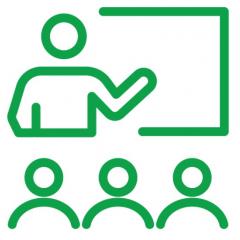The aim of KiTE CP is early identification and diagnosis of infants who have cerebral palsy (CP) or who are at high-risk of CP by six months-of-age. Infants born extremely preterm (gestational age <28 weeks), extremely low birthweight (birth weight <1000 g), or have neonatal encephalopathy or neurological risk factors (e.g. congenital disabilities, seizures, stroke) are being recruited from Victoria, New South Wales and Queensland. Infants are assessed at the time of study entry and then again at 2-years corrected age. Families complete the 2-year assessment with researchers over the phone, which has avoided the necessity of a clinic or home visit during the COVID-19 restrictions in 2020.
In Queensland, recruitment began in June 2020 at Queensland Childrens Hospital and Royal Brisbane Womens Hospital) using the ‘Early detection of infants at risk or with cerebral palsy: QLD Clinical network (QEDIN-CP)’ to help identify eligible infants. Since June, 98 infants have been enrolled in the study. With recruitment expected to be completed by July 2021, extra sites at Townsville University Hospital and Cairns Hospital, have been established in Queensland to maximise the number of families that will be able to participate.
It is anticipated that KiTE CP may assist in identifying CP earlier than is currently possible. Children at-risk could then receive targeted early intervention programs during critical periods of brain development, potentially improving long-term developmental outcomes.
Contact Details: Dr Tracey Evans, KiTE CP Clinical Research Coordinator, (07) 3069 7365, QCPRRC@uq.edu.au.
This project is funded by NHMRC partnership grant (APP158200)
Chief Investigators: Prof. Alicia Spittle, Prof. Iona Novak, Prof. Roslyn Boyd, Dr Cathy Morgan, Prof. Paul Scuffham, Prof. Russell Dale, Prof. Paul Colditz, A/Prof. Michael Fahey, Prof. Rodney Hunt, Dr Kerstin Pannek.



